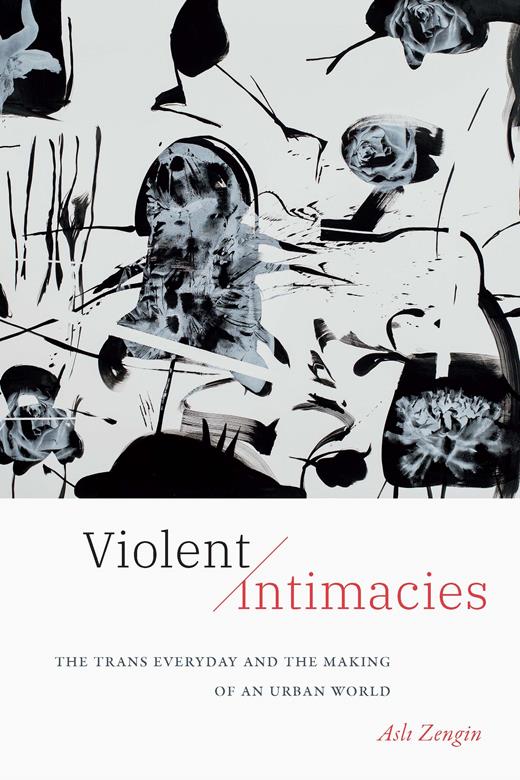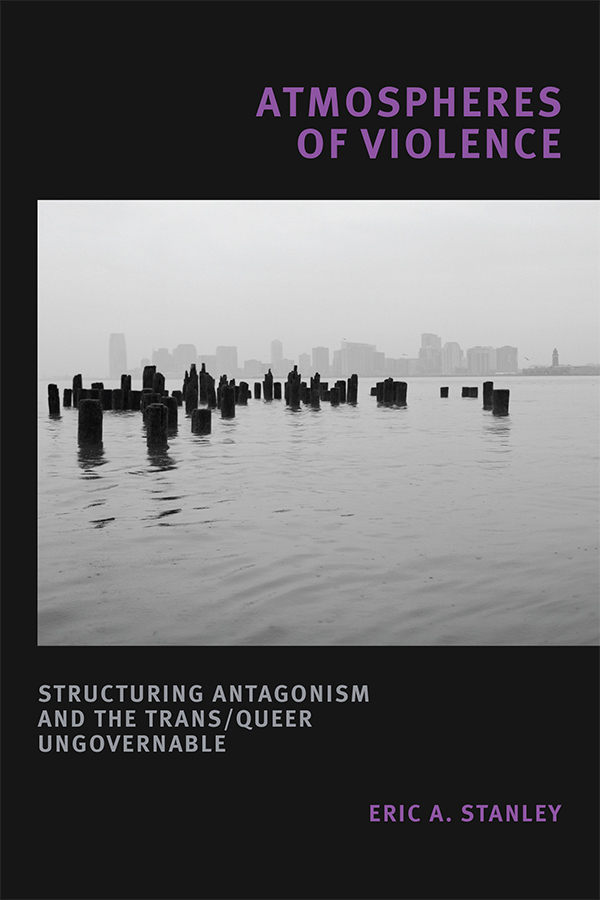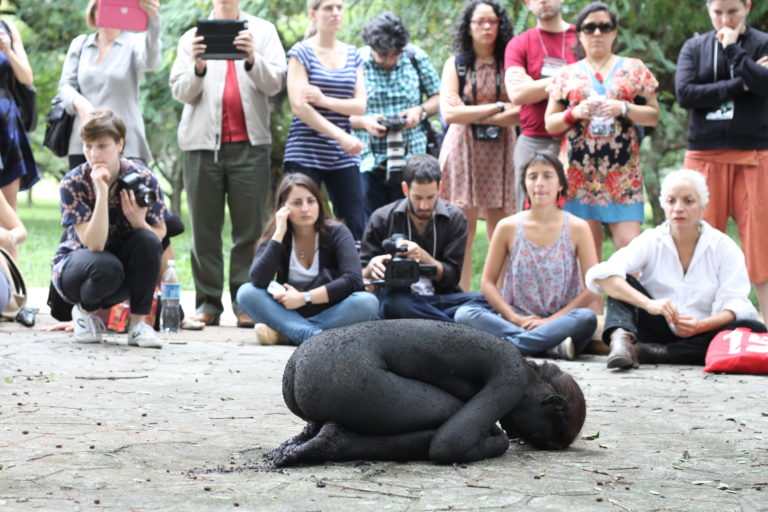Aslı Zengin’s Violent Intimacies theorizes the fraught encounter between the Turkish state and its trans subjects. Introducing the analytic framework of “violent intimacies,” Zengin advances two main claims: structural violence unfolds through intimate contact with gendered bodies, and trans women, in turn, confront this violence with intimate practices of resistance. Zengin’s work marks a significant intervention within trans studies. She pays close attention to the materiality of the body as the location where violence is both enacted and contested—a welcome departure from the tendency towards abstraction in trans theoretical production. She also pushes the field in transnational directions to address experiences of gender transgression beyond North America and Western Europe. A rich ethnography of trans life in Turkey, the text depicts everyday scenes of violent intimacies across several interpersonal and institutional settings: the street, police, medicine, law, and family. Violent Intimacies offers a vibrant account of Turkish trans women who—faced with state neglect and social exclusion—envision alternative ways of building worlds and sustaining life.
Keyword: violence
Review of Atmospheres of Violence: Structuring Antagonism and the Trans/Queer Ungovernable by Eric A. Stanley (Duke University Press)
Eric A. Stanley’s Atmospheres of Violence: Structuring Antagonism and the Trans/Queer Ungovernable delves into the spectacle and disappearance that racialized anti-trans/queer violence produces. Stanley’s method is archival. By putting surveillance tapes, letters, films, and direct actions side by side, they trace structuring logics of modernity while emphasizing trans/queer practices that have and do escape such violent worlds. While this book underscores violence, hurt, and loss, it is more accurate to classify it as a text that tenaciously holds onto the possibility of livable worlds otherwise.
Commodifying Tragedy: Representing Violence against Native American Women in The Cold Dish and Longmire
By focusing on the representation of violence against Native American women in Craig Johnson’s The Cold Dish and the television show Longmire, this article demonstrates how these cultural productions perpetuate settler-colonial power relations. Although Longmire is one of the more progressive shows thanks to its development of Native American characters and storylines, the settler-colonial status quo is affirmed in four main ways. Not only do the novel and TV show redeploy the racist stock characters of the Magical Indian and the White Savior, but the TV show especially also reiterates a version of the stereotypical Vanishing American narrative inherited from the Western genre. Furthermore, both cultural productions heavily pathologize the Cheyenne community, depriving them of agency. Finally, the novel and show both transform pain, suffering, and grief into transferable commodities. This allows them to disinvest the pain and tragedy suffered by the Native American characters in order to reinvest this tragic potential in white characters, which serves to reinforce the white characters’ heroism. The commodification of tragic potential and emphasis on its sentimentalization help obscure the settler-colonial origins and systemic perpetuation of violence against Native American women. In sum, this analysis shows that the deeply ingrained and normalized settler-colonial ideology inherent to representational strategies limit the progressive potential of even the most benevolent and well-meaning white cultural productions.
Review of Policing Life and Death: Race, Violence, and Resistance in Puerto Rico by Marisol LeBrón (University of California Press)
Using a multifaceted and transdisciplinary approach, Marisol Lebrón analyzes the development of punitive governance in Puerto Rico. Lebrón’s approach pays particular attention to how capitalist colonial settings in Puerto Rico lead to the categorization of racialized, gendered, and classed populations as problematic subjects who then become the target of state violence as public policy. Intertwined with the state and its legitimacy, the book also looks at how these populations resist repressive policies and affect social relations of power on the island.
The Self-Defeating Notion of the Sovereign Subject in US Gun Culture
The politicization of U.S. gun culture since the 1970s has popularized the idea that individual freedom and security is dependent upon the reclamation of traditionally defined sovereign powers. In this article, I outline how the exercise of popular sovereignty is a social relation of rule often involving extra-legal forms of violence, which regularizes unequal levels of vulnerability and security among various groups. I then address how the so-called sovereign subject, thought to be at the root of popular sovereignty, is conceptually contradictory and practically self-defeating. In practice, attempts to return to a supposed pre-political condition of personal sovereignty in order to secure individual freedom involves dismantling the very social conditions that enable such freedom in the first place.
Review of Premonitions: Selected Essays on the Culture of Revolt by AK Thompson (AK Press)
In this series of essays written over the last decade, AK Thompson offers a critical assessment of the analytical foundation underwriting contemporary social movement politics. Methodologically and conceptually influenced by Walter Benjamin, Thompson looks to visual culture, everyday life, and collective street actions as crystallizations of the logics saturating our culture of revolt. Through generative critique, creative conceptual development, and a consistent orientation toward identifying politically possibility, Premonitions lays the groundwork for social movement scholars and activists alike to develop a conceptual toolkit for moving beyond the mere existence of struggle as an end in itself.
Review of In the Wake: On Blackness and Being by Christina Sharpe (Duke University Press)
Christina Sharpe’s “In the Wake: On Blackness and Being” addresses issues of citizenship, racial violence, and black mortality, meshing her personal experiences surrounding death and “the wake” with a sharp critique of cultural structures, as well as a reimagining of slavery, funeral, and death metaphors. In the wake of so many “ongoing state-sanctioned legal and extralegal murders of Black people,” Sharpe’s argument that black death is a foundational aspect of American citizenship encourages readers to acknowledge the antiblackness embedded in the past, present, and future of American (and by extension, Transatlantic) democracy (7). With the continued and encouraged proliferation of black death in the global diaspora, Sharpe’s study will, hopefully, usher in more woke scholarship that questions pervasive antiblackness.
Ongoing Colonial Violence in Settler States
Response to J. Kēhaulani Kauanui, “A Structure, Not an Event: Settler Colonialism and Enduring Indigeneity,” published in Lateral 5.1. Jafri articulates how a critical race feminist/queer lens makes possible thinking that sees the repetitions of racialized, gendered, sexualized colonial violence.
Circuits of Invisibility: Performance, Violence, and Sexuality
The body is a repository of metaphors and within its function of global exchange, its limits of fragility and destruction, the body serves as a way of dramatizing the social text. Olivier Mongin, in his important study on film and modernity, has said that there is currently an “economía de las imágenes de violencia… [en…
Beds and Tables: Ordinary Violence in Rascón Banda’s Hotel Juárez
Hotels make for great theatre. They are quintessentially modern (this is especially true of motels, by way of their association with automobiles); they allow for unexpected encounters and mysterious retreats—a clichéd feature of practically every spy drama and tale of illicit sex we can remember; they combine public (lobby, bar, dining room) with private (guest…
Vibration: Objects Performing Violence, Queerness, and Transcendence / Dick Hungry Whore
Sheila Malone’s work is both digital art piece and critical essay, which explores the queerness of vibrating machines in light of both recent scholarship on objects and materiality and the author’s own work as a performance artist. Malone’s art cuts across and questions the divides between highbrow and lowbrow, permanence and ephemerality, the G-rated and the X-rated. The digital installation and accompanying essay understand the space of inbetweenness as a potential site for queer interventions into existing material orders.










